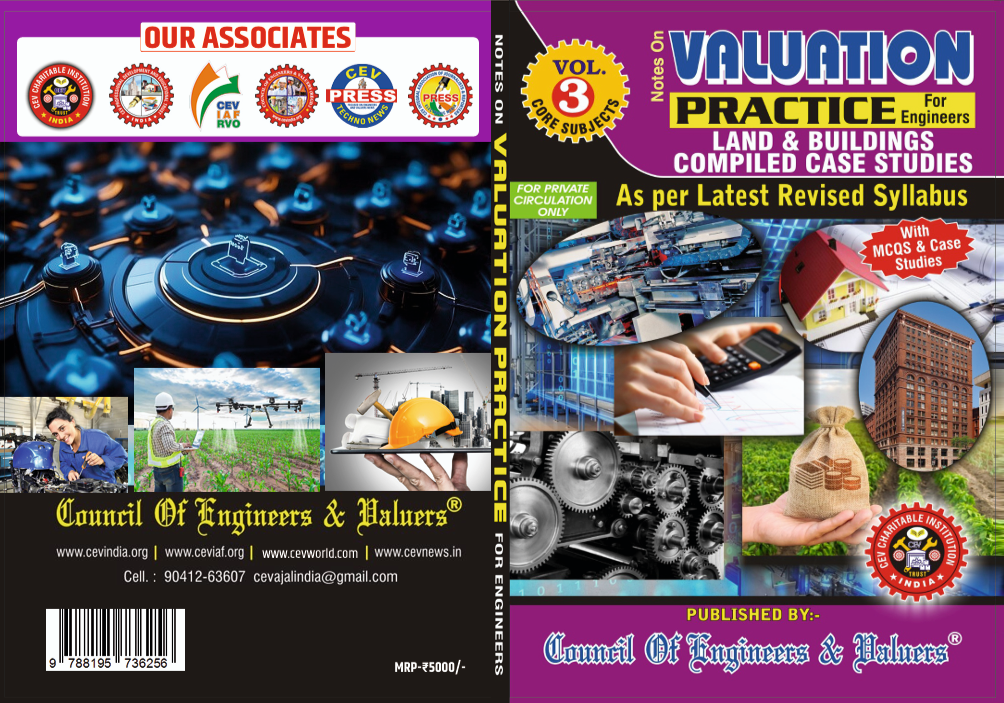KEY SUPREME COURT JUDGMENTS (JUNE 1–15, 2025): IMPLICATIONS FOR ENGINEERING, VALUATION & REAL ESTATE PROFESSIONALS
By Er. Sundeep Bansal
Published in: CEV Techno News, Renowned Newspaper for Engineering & Valuation Practice
For Professionals in Engineering, Valuation, and Land Administration
The article explains the key Supreme Court judgments from June 1 to June 15, 2025, with insights into their implications on business operations, real estate, contracts, and due diligence practices—areas highly relevant to professionals in the engineering and valuation ecosystem.
The Supreme Court of India delivered several impactful judgments between June 1 and June 15, 2025, touching upon industrial operations, borrower obligations, property development, transport logistics, and evidentiary rights. These rulings not only interpret the law but also set the tone for compliance, risk mitigation, and professional due diligence—critical areas for engineers, valuers, project managers, and consultants.
This article highlights the key decisions and discusses how they influence the professional landscape for technical and valuation experts.
1. Closure of Industrial Units: Timely Decision Mandated by Law
Case: Harinagar Sugar Mills Ltd. v State of Maharashtra (2025 INSC 801)
Bench: Justices Sanjay Karol and P.K. Mishra
Key Ruling: The Supreme Court held that applications for closure of an industrial undertaking under the Industrial Disputes Act must be processed within 60 days. If no decision is communicated within that period, the closure will be deemed approved.
Implications:
-
Engineering consultants involved in plant shutdowns or project discontinuation must be aware of this statutory timeline to ensure timely exits.
-
Valuation professionals should factor in this 60-day automatic approval clause during asset valuation for stressed assets or industrial divestitures.
-
Industrial clients must ensure that closure applications are well-documented, with proof of submission, to benefit from deemed approvals.
2. Defaulting Borrowers Cannot Invalidate Transactions by Citing Their Own Breach
Case: Machhindranath v Ramchandra Gangadhar Dhamne (2025 INSC 795)
Bench: Justices Sudhanshu Dhulia and Ahsanuddin Amanullah
Key Ruling: The Court ruled that a borrower in breach of contractual obligations cannot challenge a property sale on grounds of their own default. Only the aggrieved party has the locus to question the transaction.
Implications:
-
Valuers assessing distressed asset sales or mortgage defaults should rely on this principle for clarity on title risks and litigation exposure.
-
Engineering and project management professionals involved in foreclosed or NPA-linked properties can be assured of stronger legal protection for bonafide transactions.
3. Railway Misdeclaration Charges Valid Before and After Delivery
Case: Union of India v M/S Kamakhya Transport Pvt Ltd (2025 INSC 805)
Bench: Justices Sanjay Karol and P.K. Mishra
Key Ruling: The Court clarified that under Section 66(4) of the Railways Act, 1989, punitive charges for misdeclaration of goods are valid irrespective of whether delivery has been completed.
Implications:
-
Logistics and infrastructure consultants must audit goods declaration processes diligently to avoid punitive liabilities.
-
Valuers handling supply chain audits or asset-based lending assessments should examine potential misdeclaration risks as part of due diligence.
-
Engineers managing transportation contracts should ensure compliance with declared cargo weights and types, especially in EPC or turnkey projects.
4. Developers Not Liable for Interest on Buyers’ Personal Loans
Case: GMADA v Anupam Garg (2025 INSC 808)
Bench: Justices Sanjay Karol and P.B. Varale
Key Ruling: Developers are liable to refund principal and interest for project delays, but are not responsible for paying interest on home loans or personal borrowings taken by the buyer.
Implications:
-
Real estate valuers must separate developer liability from buyer-specific financing when assessing claims or project risks.
-
Engineers involved in delayed or abandoned real estate projects must document causes of delay and ensure transparency to avoid future liability.
-
Professionals advising on RERA disputes should rely on this precedent when calculating legitimate claims.
5. No Absolute Right to Narco-analysis for Accused
Case: Amlesh Kumar v The State of Bihar (2025 INSC 810)
Bench: Justices Sanjay Karol and P.B. Varale
Key Ruling: The Supreme Court held that an accused person does not have an absolute right to undergo a narco-analysis test as a means to produce evidence. The discretion lies with the court.
Implications:
-
This has less direct application to engineering or valuation but reinforces judicial discretion in evidence procedures, which may arise in white-collar or fraud-related cases involving technical professionals.
-
Professionals falsely implicated in such cases should focus on documented audit trails, expert reports, and third-party validations, rather than relying on investigative tests for exoneration.
What This Means for Professionals
These rulings reinforce the growing judicial emphasis on accountability, procedural fairness, and strict adherence to statutory obligations. Engineering and valuation professionals—often caught at the crossroads of compliance, client expectations, and project execution—must stay updated on such judgments to:
-
Conduct better due diligence
-
Reduce legal risks in contracts and project advisories
-
Evaluate assets and liabilities with a stronger legal lens
The Supreme Court’s evolving jurisprudence offers a robust framework for professional conduct, ensuring that lawful, ethical, and process-driven approaches are duly rewarded.
Disclaimer: This article is for educational and professional reference only and does not constitute legal advice. Professionals are advised to consult qualified legal experts for case-specific guidance.
About the Author:
Er. Sundeep Bansal is a Chartered Engineer and an IBBI-registered valuer under the Companies Act, with a specialization in Real Estate. He regularly advises on complex valuation disputes, tax planning, and regulatory compliance, and is a contributor to leading industry journals.



